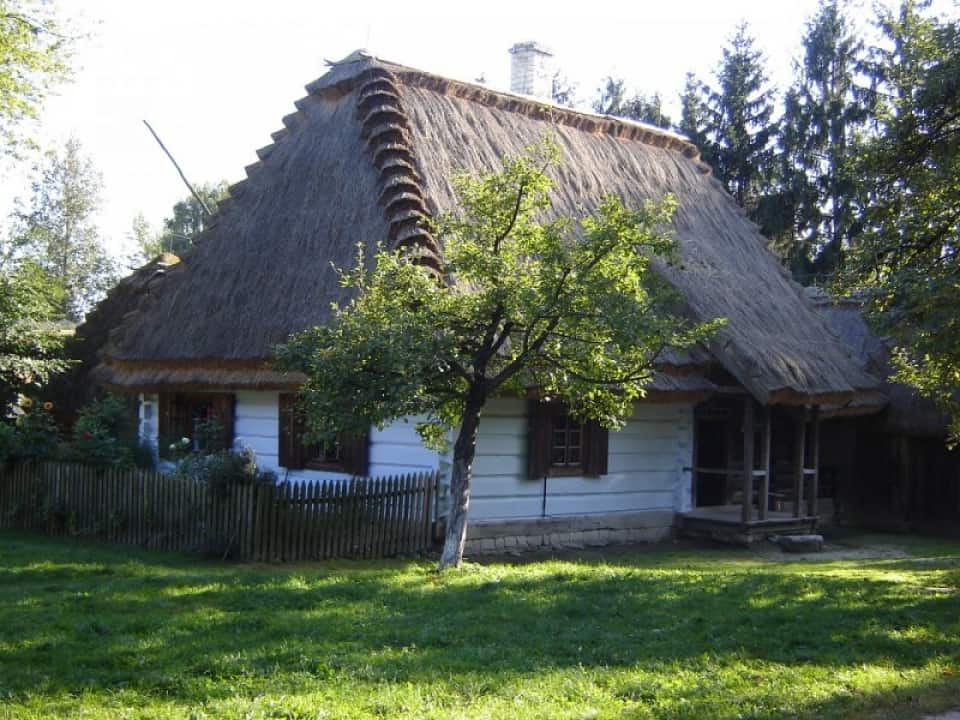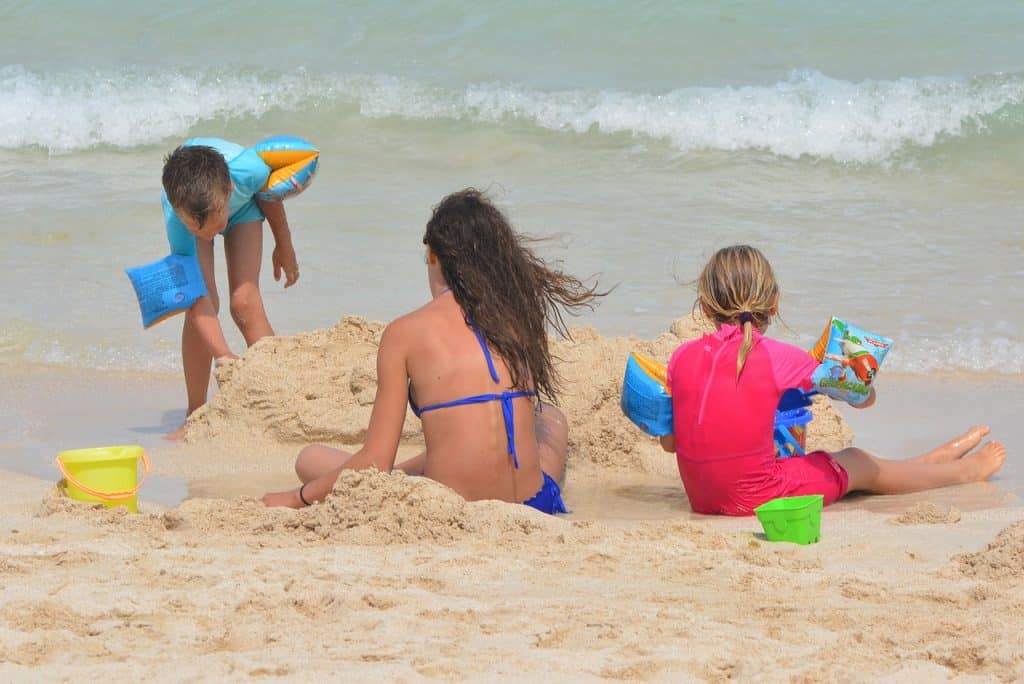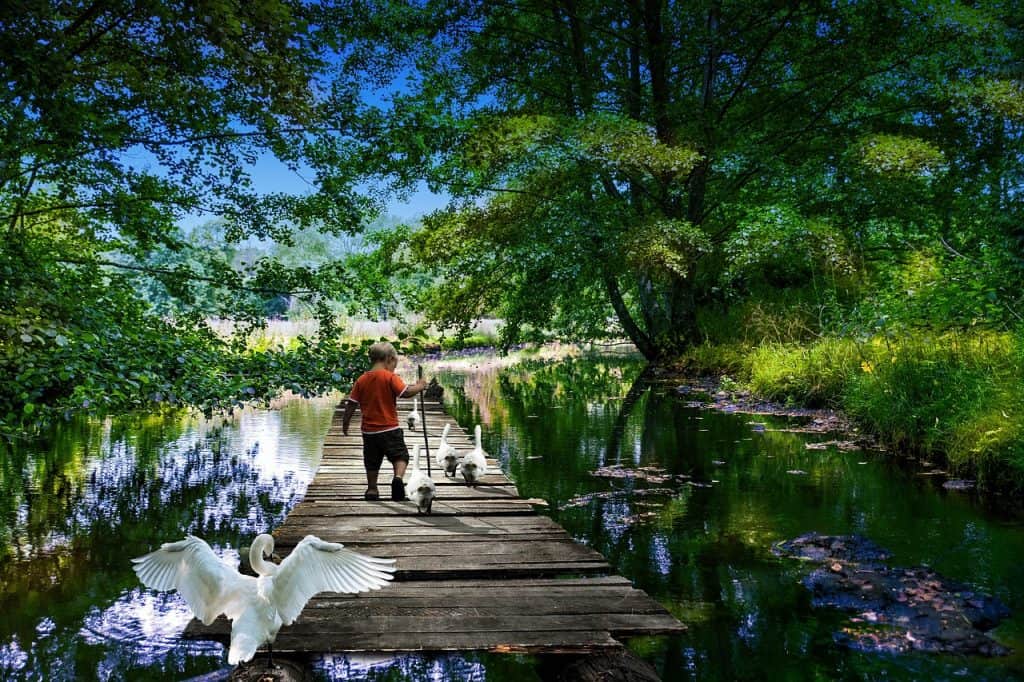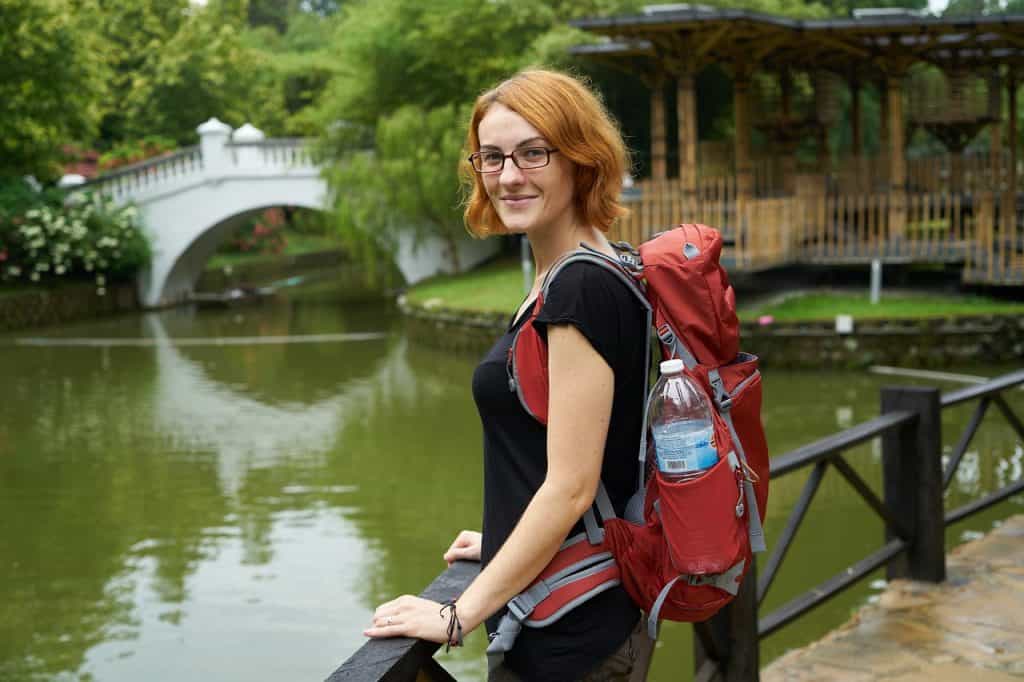Poleska village is a treasury of knowledge about old customs and rituals.

Easter
In tradition, Easter begins with Palm Sunday. The most important of the celebrations on this day were the blessing of palm trees and processions with palm trees. Palm trees were credited with magical powers that were further enhanced by ordination. They were to protect people, houses and animals from all evil, magic, disease and fire. It is common belief that swallowing a catkin protects against throat, headache and stomach aches. Dedicated palm trees were hit with cry: I do not beat – the palm beats. Willow beats, does not kill. The palm was clogged for the holy image, so that it protected the bypass from lightning and in the field. In Chełm, fear of thunder, a piece of palm tree was thrown into the fire. Cattle were also hit with it during the first grazing in the pasture to hide well. One of the most important symbols of Easter are eggs – they remind of a reviving life. They were on the tables, they were the usual gift during Easter. They were given to family members and friends they met. People in love handed them to their sympathizers. The reciprocity of this gesture was a very promising sign, and testified to possible matrimonial prospects. In the Lublin region, eggs were most often made using the batik technique and with the method of scraping the pattern using a sharp tool on a previously dyed egg. Another known custom is of course Whig-dyngus. On Monday, no one was getting away with it, but the pretty and well-liked ladies of the issue got the most.
Corpus Christi
The tradition of blessing wreaths made of herbs into the octave of Corpus Christi is still alive in the Lublin region. In the past, great importance was attached to this, because not only did they decorate the rural chambers, but also were a kind of home medicine cabinet, which was used when one of the household members fell ill.
Midsummer night
In Podlasie, Mazovia and Rus, the Saturday rite is known under the names buys, compals, kumpałecka and kupalnock.
Burning fire played the most important role in the Saturday celebrations. Jumping through fire also had a magical meaning. The boys, to the delight of everyone, especially young brides, showed off their agility by jumping over the fire. They also jumped in pairs: a boy and a girl, holding hands tightly – a successful jump bode for them a happy, marital future. Launching wreaths on water was also one of the important Midsummer customs. This symbol of virginity was prepared by the ladies on the issue. Wreaths embellished with herbs (thyme, stonecrop or myrtle) and flowers (many of them were used in love magic) were placed on a wooden board, a candle was attached and put on water. Their unexpected encounter was to ensure, for example, an imminent meeting of a future spouse. Few daredevils went to the forest looking for a fern flower.
Harvest Festival
The harvest festival was the culmination of farm hardship (although autumn sowing was still waiting) and was a reward especially for the best harvesters. The harvest wreath is a symbol of a happily completed work in a given year and a gift of thanksgiving carried by the best women. The sacred seed from the harvest wreath was then added to the seed.
Potato harvest
Among the customs associated with the autumn period, we distinguish, among others Dokopiny. In the past, e.g. around Spiczyn and Zawieprzyce, the end of potato digging was celebrated. A wreath of flowers and potato drips was made, food was prepared, and at the end men danced dressed in black coats.
Christmas
Herody is the most popular Christmas spectacle in the Lublin region. It was attended by boys usually dressed as King Herod, a Jew, death, field marshal, four soldiers, a devil and an angel, a Turk, queen, etc. The performance took place at home from the second day of Christmas to the Magi. The basic dramatic theme was the crime of King Herod and his death. The final and inseparable element of the performance was framing the girl. During it, caroling bachelors sang a special lady a special Christmas carol. Maidens willingly and in large numbers came to this rite, because he promised a quick marriage and added obvious splendor. Another, less known form of Christmas carolling is walking with the so-called praise.
The article comes from the portal: http://www.turystyka-pojezierze.pl/


